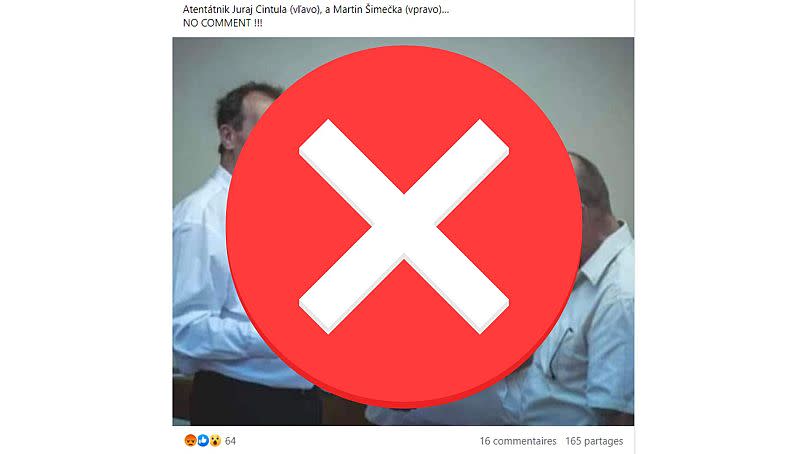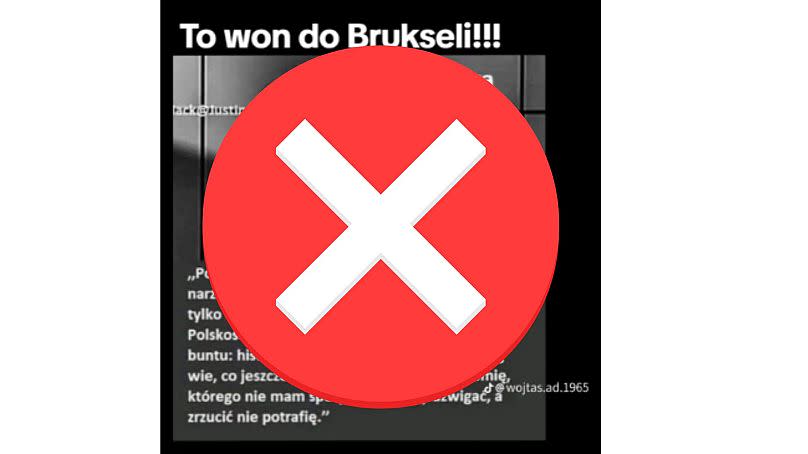Fake news on the rise as the European elections draw near

- Oops!Something went wrong.Please try again later.
- Oops!Something went wrong.Please try again later.
Ahead of the European elections between 6 and 9 June, EU leaders and the European Union itself are increasingly finding themselves as the targets of misinformation campaigns.
Whether it’s an attempt to discredit political rivals or claims about EU regulations, social media is rife with false narratives.
One such example stems from the dramatic shooting of Slovakia’s Prime Minister Robert Fico, which has prompted swathes of politically-motivated misinformation online.
Slovakians condemn attack against Prime Minister Robert Fico
Slovakian ministers blame media and opposition for attack on Prime Minister Robert Fico

Social media users are claiming that this picture shows Fico’s alleged attacker alongside Martin Šimečka, the father of the leader of the opposition party Progressive Slovakia.
Slovakian media has identified the alleged shooter as self-described writer Juraj Cintula.
However, the picture in the post doesn’t show Cintula and Šimečka together. In fact, the second man in the picture isn’t Šimečka at all, and the photo itself comes from one of Cintula’s book launches in 2019.
Facebook itself has now labelled the post as false information.
The attempted false association of the attack on Fico with his political rivals remains particularly dangerous ahead of the European elections.
Is Donald Tusk ashamed of his Polish identity?
Across the border in Poland, Prime Minister Donald Tusk has been accused of attacking the notion of Polishness as an identity.
A picture posted on TikTok claims that Tusk called Polishness ‘an abnormality’ that comes to him ‘with painful persistence’. However, this is misleading.

The prime minister did state those words, but they come from an article he wrote over 40 years ago.
According to Polish fact-checkers, Tusk’s article critically discusses Poles’ attitudes to reality before confirming that he identifies with his own Polishness, at a time when Poland was a communist satellite of the Soviet Union.
"Despite its oppressive heritage it remains our common conscious choice," he said.
As a strongly pro-EU prime minister who previously served as president of the European Council, Tusk is a crucial target for misinformation mere weeks before the elections.
Is the EU banning cash payments of over €100,000?
Often, it’s the EU itself that’s under attack from those spreading false narratives.
Some social media users say the bloc has prohibited all cash payments over €100,000.
This is partly true: the EU has approved rules limiting cash transactions to €100,000 as part of a raft of new anti-money laundering measures, but these restrictions don’t apply to all transactions.
Specifically, there’s a limit on professional traders barring them from accepting or paying cash over €100,000.
Transfers between private individuals in a non-professional context are excluded.
Ahead of the European elections, it’s critical that news is shared accurately and fairly, so that the electorate can vote with the proper information at hand.

